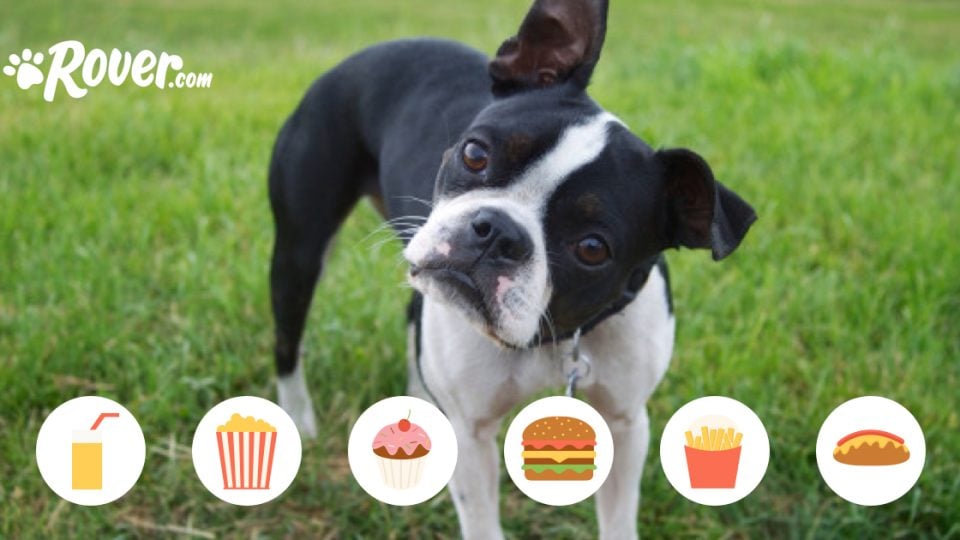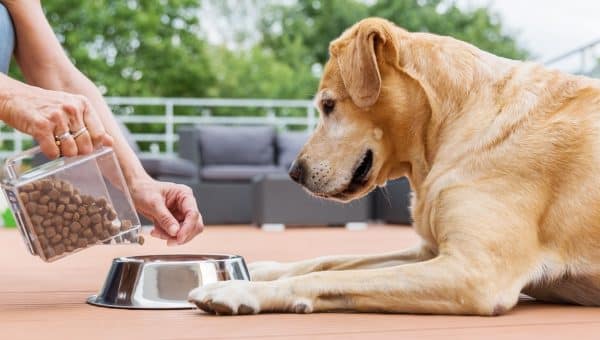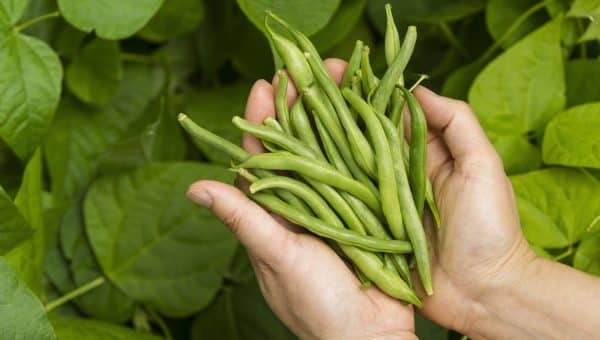- Not a substitute for professional veterinary help.
In the human diet, kale, a leafy green that is dense in vitamins and minerals, is considered a superfood. For canines, maybe not so much. While kale isn’t toxic, it can be dangerous for dogs, especially in large quantities. Yes, your dog can eat kale but should they?
Can My Dog Eat Kale?
Yes! Kale is safe for your dog in small quantities. Kale is a high source of vitamin K, vitamin C, beta-carotene, calcium, magnesium, and potassium. These vitamins support the health of your dog’s vision, blood, liver, colon, muscles, immune system, and more.
What Are The Benefits Of Eating Kale?
Kale is a member of the cruciferous vegetable family and a cousin to plants like cauliflower, cabbage and collard greens. Chock full of vitamins like A, B6 and C, as well as minerals like potassium and calcium, it’s a nutritional powerhouse for humans. Among its many health benefits, eating kale regularly can help lower cholesterol, protect eyesight, reduce the damage caused by free radicals and help fight cancer.
While it seems reasonable that a dog would reap similar benefits from eating kale, little research has been done on the subject. What we do know is that, in addition to all those healthful vitamins and minerals, kale also contains calcium oxalate and isothiocynantes, both of which can cause health problems in dogs.
Is Kale Safe For Dogs To Tat?
It depends. A little bit of kale offered on occasion to a healthy adult dog is unlikely to make them sick. But a dog that is regularly fed kale risks developing health issues that range from minor to serious including stomach upset, kidney and bladder stones, and thyroid issues.
What Makes Kale Dangerous For Dogs?
There are a few culprits that make kale, as well as other cruciferous vegetables, dangerous for dogs.
Calcium oxalate
A compound of calcium and oxalic acid, an organic compound found in plants, calcium oxalate is responsible for the formation of hard clumps, crystals or stones in the kidneys or bladder. The stones are painful and can lead to swelling in the bladder or urethra, muscle spasms or the inability to urinate, a potentially life threatening situation. While small stones can pass on their own, larger ones may need to be surgically removed.
Isothiocyanates
A byproduct of the combination of sulfer-containing compounds and water in the body, isothiocyanates are known to cause mild to severe gastrointestinal distress in dogs.
Iodine and nitrates
A deficiency in iodine can cause hypothyroidism, a thyroid condition that slows the metabolism and leads to problems like weight gain and exhaustion. Because kale and similar vegetables can cause iodine to build up in the body, if your dog is on medication for hypothyroidism, the increase may actually cause them to get too much of the essential nutrient. A diet with too much iodine can lad to stomach upset, vomiting, diarrhea, and in severe cases, coma or cancer.
How Much Kale Can My Dog Safely Eat?
Kale is only safe for dogs to eat in very small quantities. If your dog is healthy, cruciferous veggies shouldn’t pose a threat as long as they make up less than 10% of their diet. Any more than that,and even a healthy dog can become ill. If kale and other cruciferous vegetables make up 25% or more of your dog’s diet, they can be toxic.
If your dog is a senior or has a history of bladder, kidney or thyroid problems, though, kale and cousins like broccoli and Brussels sprouts should not be incorporated into their diet. Even just a little bit could land your dog at the vet.
How Should I Feed Kale To My Dog?
If you choose to feed your dog small amounts of kale on occasion, it should be washed thoroughly then steamed or cooked with no additional seasonings or oil. Once prepared, kale can be fed as a treat or mixed with other nutritionally approrpiate foods.
What Symptoms Should I Watch For After My Dog Eats Kale?
The first time you feed your dog kale, keep a close watch to identify any change in their behavior. Gastorintestinal distress including vomiting and diarrhea are the most immediate signs you’re likely to see. Over time, you may also discover changes in their urination. If your dog begins to struggle to urinate, has to go more frequently but only pees a tiny bit each time, or trys to avoid going out altogether, contact your vet immediately.
What Vegetables Can I Feed My Dog Instead Of Kale?
Whether you have a senior dog or one that suffers from kidney, bladder or thyroid problems, or if you just want avoid the potential health problems associated with kale altogether, there are plenty of healthful alternatives to feed your dog. The following options can be served raw or cooked – just be sure to leave out the salt and spices.
- Green peas, snow peas and snap peas
- Green beans
- Celery
- Carrots
- Cucumbers
- Zucchini squash
For More Information
We’ve got tons of articles about which foods are safe or dangerous for your dog, from common snacks to fruits, all wrapped up in this handy resource. You might also be interested in “Can My Dog Eat Lettuce?“






